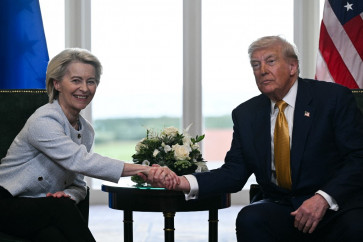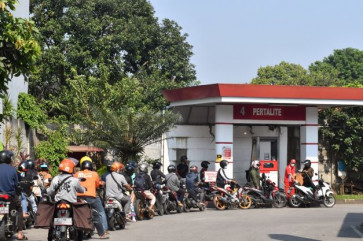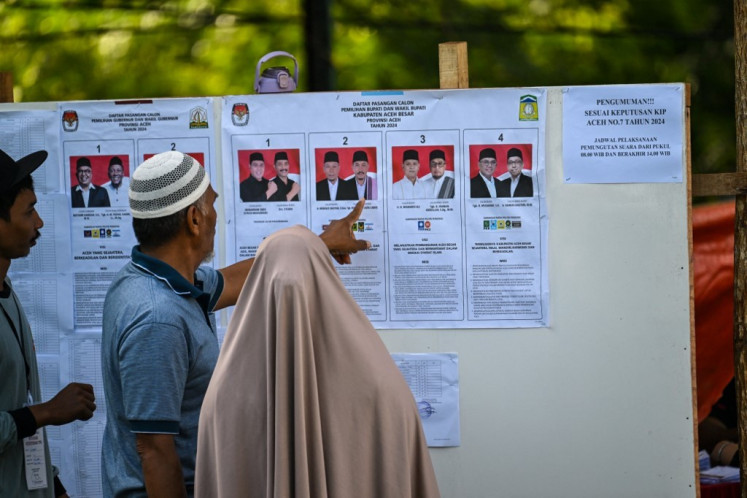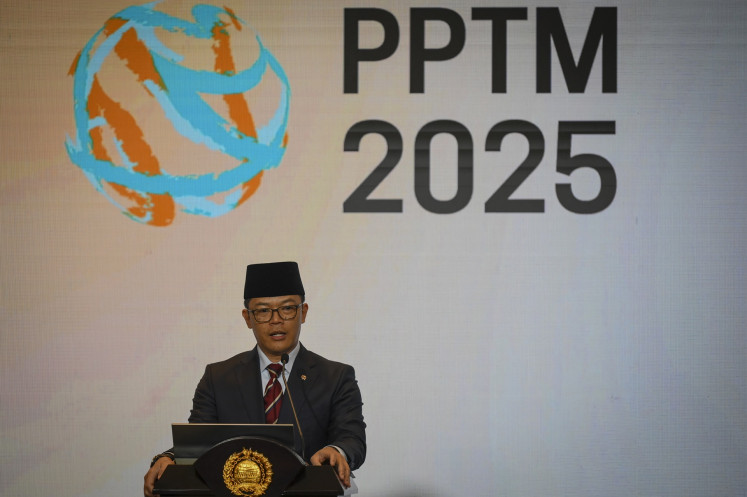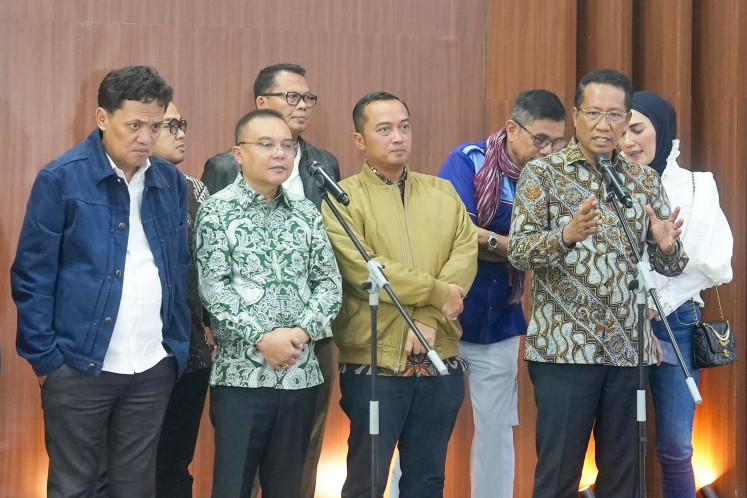Popular Reads
Top Results
Can't find what you're looking for?
View all search resultsPopular Reads
Top Results
Can't find what you're looking for?
View all search resultsMarty discusses RI pluralism at Vienna forum
Despite repeated attacks on the country’s minorities, Indonesia claims it has always endeavored to practice “responsible leadership in diversity and dialogue”
Change text size
Gift Premium Articles
to Anyone
D
espite repeated attacks on the country’s minorities, Indonesia claims it has always endeavored to practice “responsible leadership in diversity and dialogue”.
At the fifth Global Forum of the UN Alliance of Civilizations (UNAOC) in Vienna, Austria, Foreign Minister Marty Natalegawa said that efforts had been made to promote tolerance, respect, dialogue and cooperation among cultures and religions, according to a written speech received by The Jakarta Post on Wednesday.
Marty noted that for a country as diverse as Indonesia, embracing pluralism, as encapsulated in the nation’s motto: “unity in diversity”, was a fact of national life. It is in-built in our national outlook. “While clearly not without challenges, we have been unrelenting in our promotion of democracy in a multicultural, multi-faith setting,” he said.
An extensive network of partnerships had been forged both within the country as well as regionally and globally, Marty said. He added that Indonesia had collaborated with 22 governments in conducting bilateral interfaith dialogues, which were attended by policymakers, academics, civil society, media representatives and religious leaders, to exchange views on social and cultural issues in a spirit of mutual respect and understanding.
In a report released on Thursday, New York-based Human Rights Watch urged the Indonesian government, security forces and courts to do more to protect religious minorities from increasing incidents of intolerance and violence.
It cited a steady increase in brutal attacks over the past few years due to the government’s failure to confront thuggish harassment of Christians, Shiites and Ahmadis.
Marty acknowledged that despite goodwill and best intentions, the reality evinced high levels of intolerance in certain parts of the country. “[Intolerance is] often amplified in times of crisis, when people’s confidence is low, which raises their fear and distrust. These are times when blame is too readily directed toward the most vulnerable,” he said.
Pockets of racial, ethnic and religious intolerance thus proliferate.
Therefore, Marty said, Indonesia hoped the UNAOC would ask what had worked and what had not. “Otherwise, we risk a disconnect between the alliance’s efforts and the actual reality on the ground.”
UNAOC is a political initiative of the UN secretary-general. It was launched in 2005 by former UN secretary-general Kofi Annan, with cosponsorship from Spanish and Turkish leaders.
The primary mission of the UNAOC is to forge collective political will and to mobilize concerted action aimed at improving cross-cultural understanding and cooperation among countries, peoples and communities. The alliance develops its actions at both governmental and civil society levels.
It also works to counter forces that fuel polarization and extremism. The UNAOC’s particular focus is on improving relations within and between Western and Muslim societies and addressing persistent tensions and divides.
Indonesia has been elected to host the UNAOC’s next meeting in 2014.



